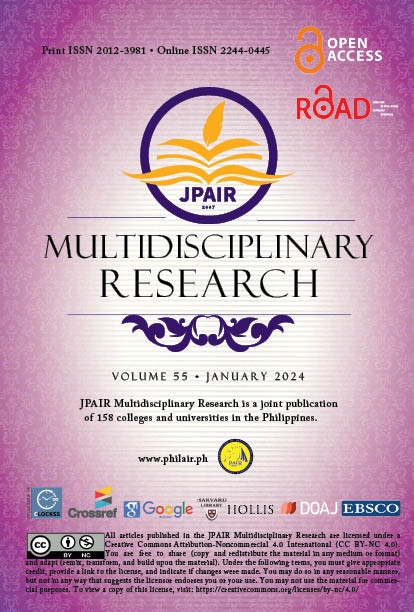The Impact of Taekwondo Training on Psychological Health and Anti-Frustration Ability of College Students
DOI:
https://doi.org/10.7719/jpair.v55i1.488Keywords:
Psychology, Sports Science, Taekwondo Training, Psychological Health, Anti-frustration ability, t-tests, ANOVA, Quantitative Design , ChinaAbstract
Taekwondo, a traditional Korean martial art, has gained popularity worldwide and is recognized for its physical and mental benefits. This study investigates the influence of Taekwondo training on the psychological health and anti-frustration ability of college students. The primary aim is to examine how participation in Taekwondo classes affects the psychological well-being and anti-frustration ability of college students. This study utilized a pre-post intervention design, employing the General Health Questionnaire (GHQ-20) and the Connor Davidson Resilience Scale (CD-RISC) to assess participants' psychological health and resilience before and after Taekwondo training. Participants completed pre-training assessments, underwent a structured Taekwondo training program, and completed post-training assessments. Quantitative analysis compared pre- and post-training scores to determine any significant differences. Initial findings reveal a significant correlation between Taekwondo training and improved psychological health indicators, such as reduced anxiety and increased self-esteem. Moreover, participants demonstrate enhanced resilience in coping with academic and personal challenges. Taekwondo training emerges as a promising intervention for enhancing college students' psychological health and anti-frustration ability. By promoting physical fitness, self-discipline, and stress management techniques, Taekwondo fosters a holistic approach to well-being.
Downloads
References
Ahmed, Z., Mohamed, N. H., & Said, Z. (2017). Factors influencing mental health help-seeking behavior among university students: A conceptual model. Journal of Public Health in Africa, 8(1), 664.
Auerbach, R. P., Mortier, P., Bruffaerts, R., Alonso, J., Benjet, C., Cuijpers, P., ... & WHO WMH-ICS Collaborators. (2018). WHO World Mental Health Surveys International College Student Project: Prevalence and distribution of mental disorders. Journal of Abnormal Psychology, 127(7), 623.
Bao, G. H. (2019). The predictive effect of psychological resilience on resilience is mediated by positive emotions. Health Frontiers, 5.
Downloads
Published
Issue
Section
License
Copyright (c) 2024 Wei Kang (Kevyn), Lorna A. Espeso, Nea A. Sualog

This work is licensed under a Creative Commons Attribution-NonCommercial 4.0 International License.
Open Access. This article published by JPAIR Multidisciplinary Research is licensed under a Creative Commons Attribution-Noncommercial 4.0 International (CC BY-NC 4.0). You are free to share (copy and redistribute the material in any medium or format) and adapt (remix, transform, and build upon the material). Under the following terms, you must give appropriate credit, provide a link to the license, and indicate if changes were made. You may do so in any reasonable manner, but not in any way that suggests the licensor endorses you or your use. You may not use the material for commercial purposes.




















